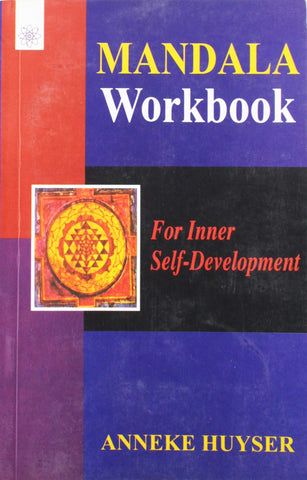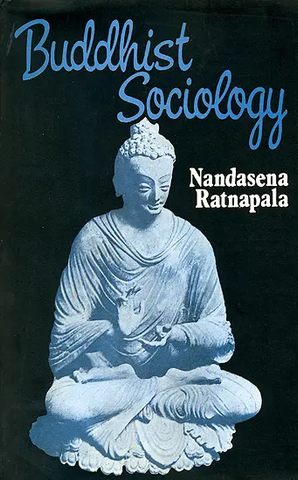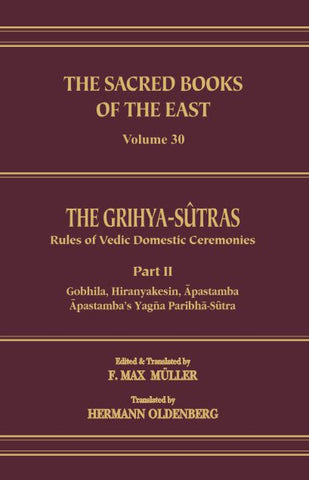Your cart is empty now.
This book attempts to analyze the reasons for the growth of dissent and schism among the Buddhist Sanga community after the demise of Buddha and the consequent development of different Schools beginning with Mahasa?gika and then Mahayana and perhaps ending with Vajrayana. It examines the influence of traditions such as Veda, Hinduism, Skepticism, Jainism etc. on the evolution of this process. How the important tenets and doctrines of Buddhism underwent change due to this process is studied and compared to emphasize the consequent differences. The "Trilakhana", Existence, Mind and Psychology, Knowledge, Morals, Karma and Rebirth, "Sunyatava", Logic, Idealism are some of the subjects and areas that come under examination in this study. Early Buddhism forms the basis for clarification. Contribution made by philosophers like Nagarjuna, Asanga, Vasubandu and others are discussed. Spread of Buddhism, its introduction into Sri Lanka and its decline in some countries are also briefly described.
Professor N.A.de S. Amaratunga is an Emeritus Professor in the University of Peradeniya, Sri Lanka. He held the post of Senior Chair Professor of Oral and Maxillofacial Surgery in the Faculty of Dental Science, University of Peradeniya, Sri Lanka. He was the Dean of the same Faculty and had been a member of the University Council as well. He is a holder of the highest university degree Doctor of Science.
Despite his busy engagement with the academic work of the University he had been deeply interested in Literature and Buddhist Philosophy. He has published two novels and two short story collections. Prof. Amaratunga has contributed several scholarly articles in the field of Buddhist Philosophy to journals.
I am very pleased that a person whose basic academic training is not in Buddhist Studies, but in an applied science like Dentistry, has taken such deep interest in the study of Buddhism, and produced a really informative and impressive work on the controversies that resulted in the emergence of a number of different Buddhist Schools in the history of the development of Buddhist thought. Confirming a basic principle of the teaching of the Buddha that everything is subject to change and transformation, even his teaching is seen to have branched off into numerous schools of thought within just a period of about three centuries. This process continued even through many centuries that followed due to the influence of, and interaction with, other non-Buddhist systems of Indian thought. The consequence of such transformation was the emergence of even interpretations that seemed to contradict each other moving away from the primarily pragmatic concern that was characteristic of the original teaching of the Buddha.
Buddhism is an Indian religion based on the teachings of Gautama Buddha who was born in 623 BC and died at 80 years of age. During his time there was tremendous intellectual activity and several religious and life philosophies were being discoursed. Most of these ideas and views in the final analysis could be broadly divided into two categories; one was eternalist and the other nihilist. The Vedic tradition and also other theistic philosophies propounded eternalism while Materialists and Sceptics tended towards nihilism. However, the common characteristic of these two groups was the tendency towards the seeking of an absolute truth regarding the world and the life on it (Kalupahana, 2006). Buddha before he attained enlightenment, as Prince Siddhartha had studied all these philosophies and had come to think that the endeavour to look for an absolute truth as the answer to the question on the life on Earth was wasteful and moreover there may not be an absolute truth. Siddhartha was more interested in the human predicament, the fact that human life was one of suffering and he wanted to find relief from suffering. He gave up lay life and went in search of a way to end suffering. Realizing the inadequacy of his teachers he went on his own path, found the cause of suffering and discovered the method to eliminate the cause and attained Nibbana, freedom from all attachments.
Sample Pages
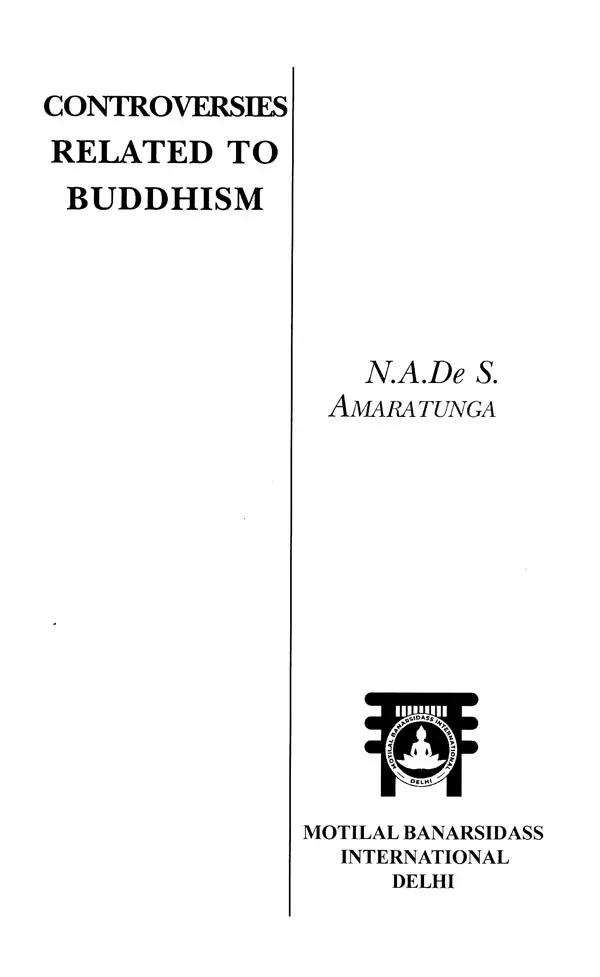
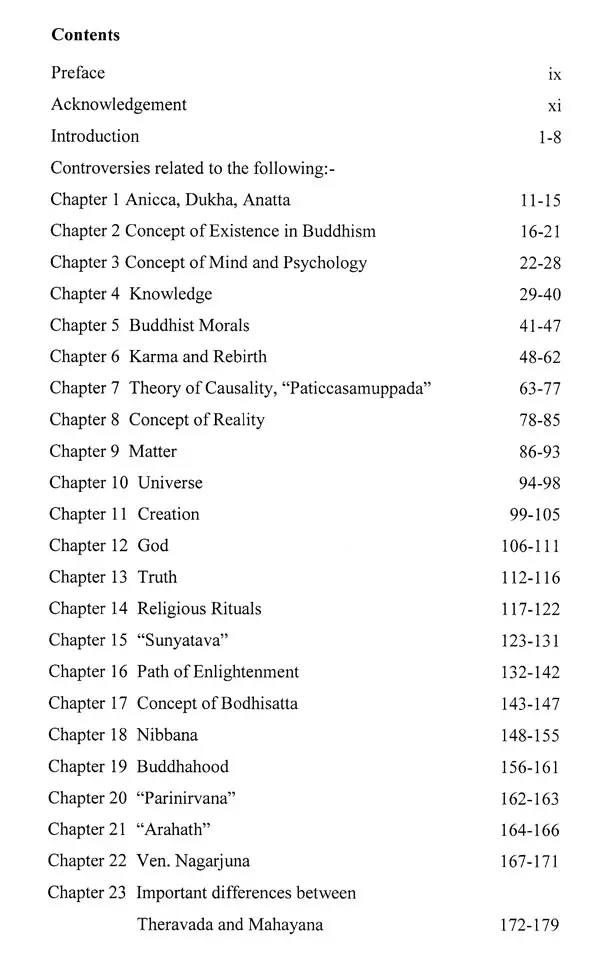
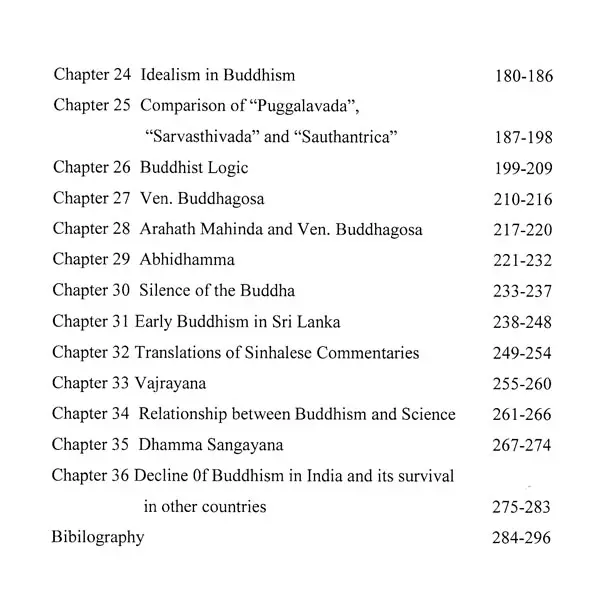
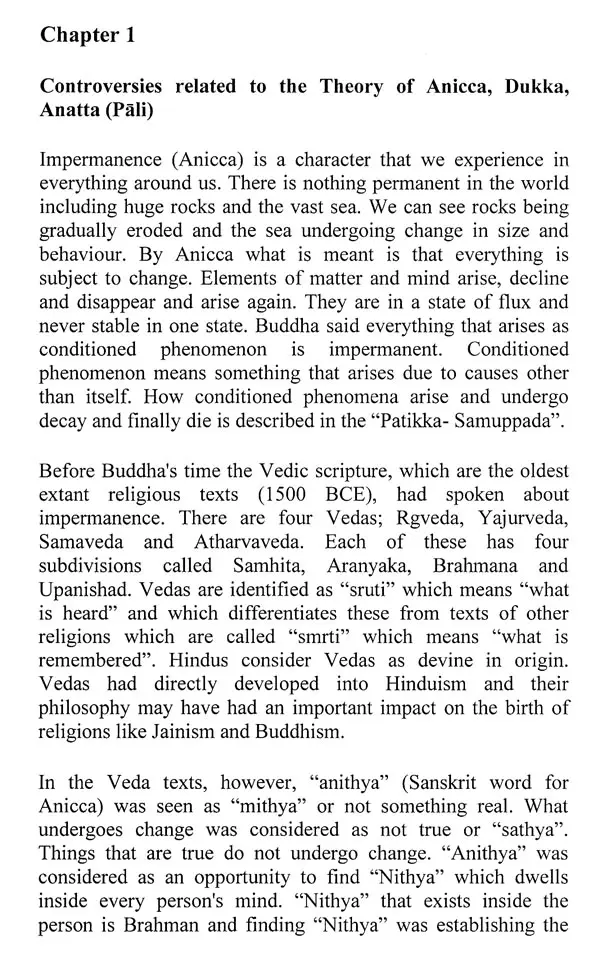
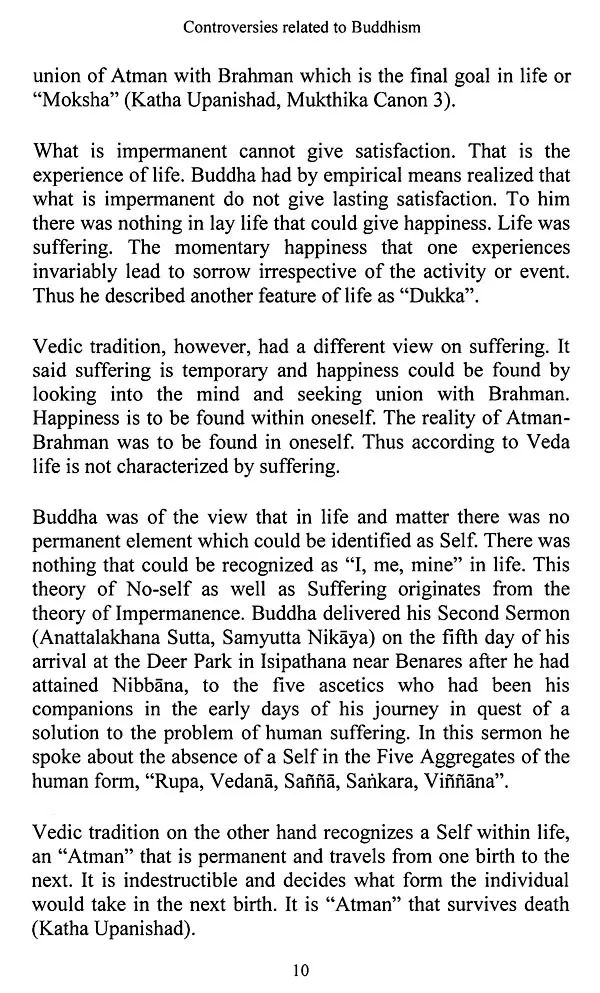
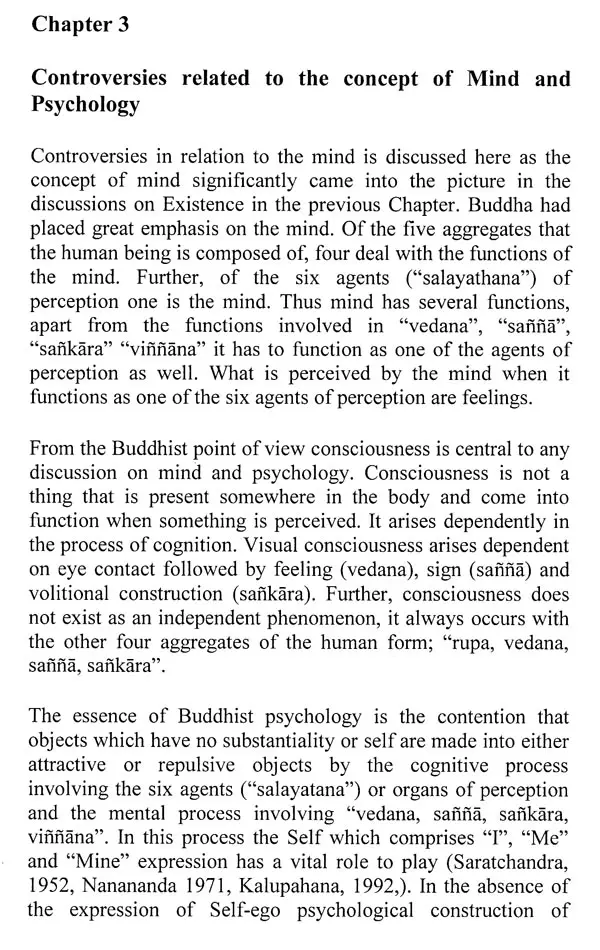
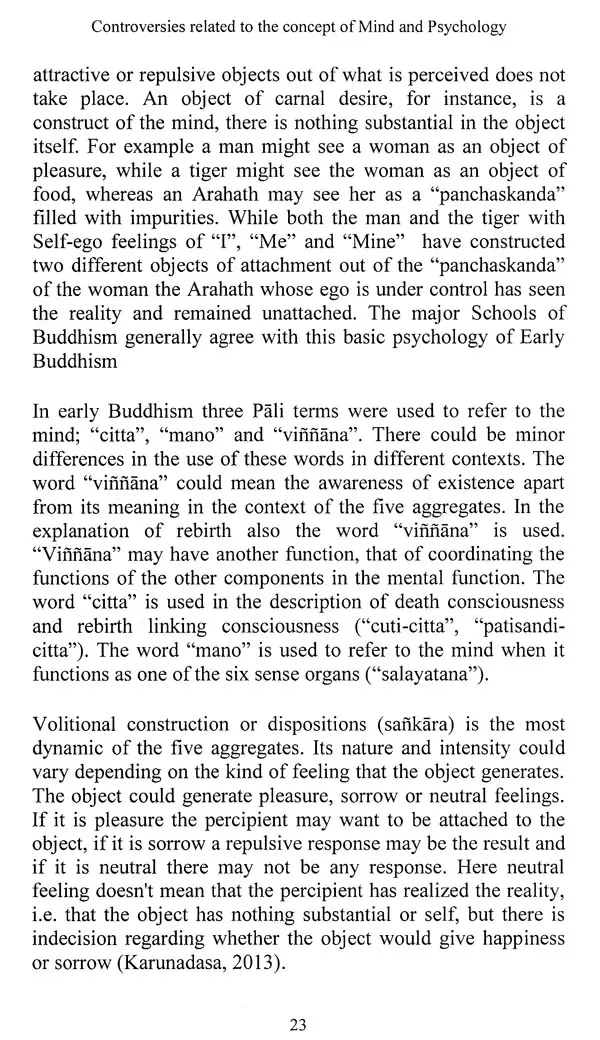
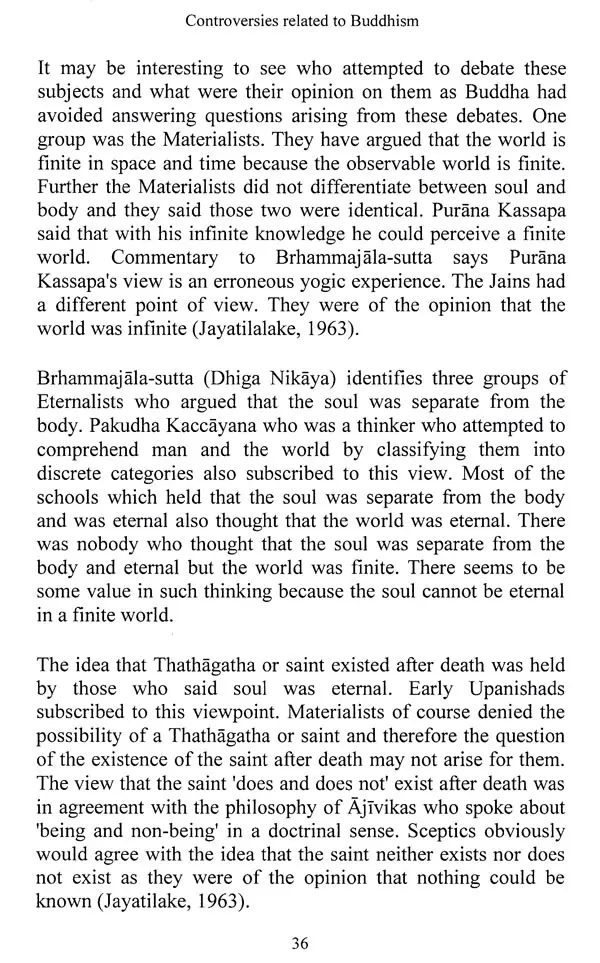
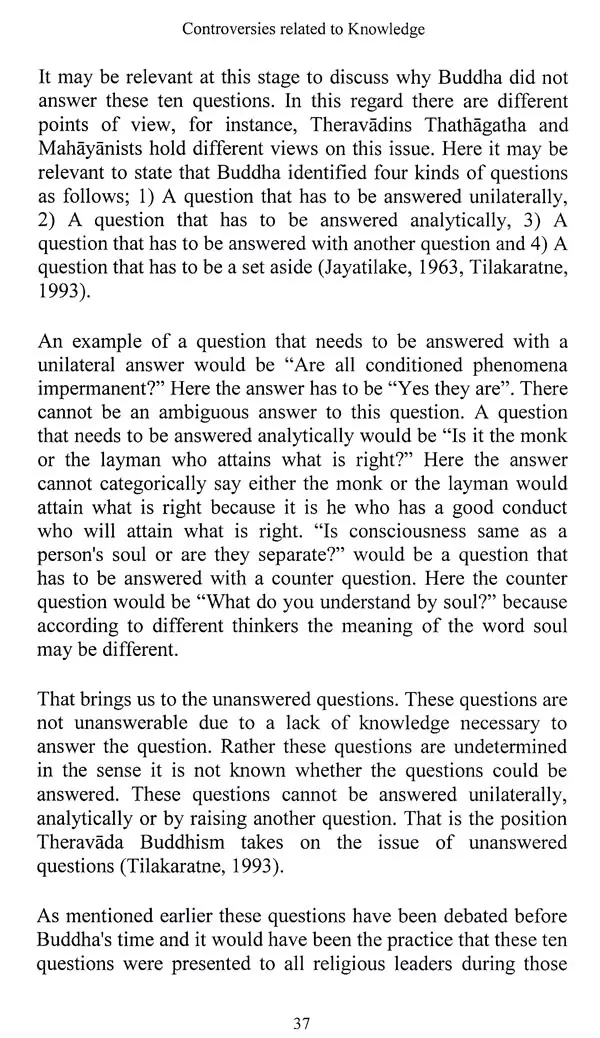
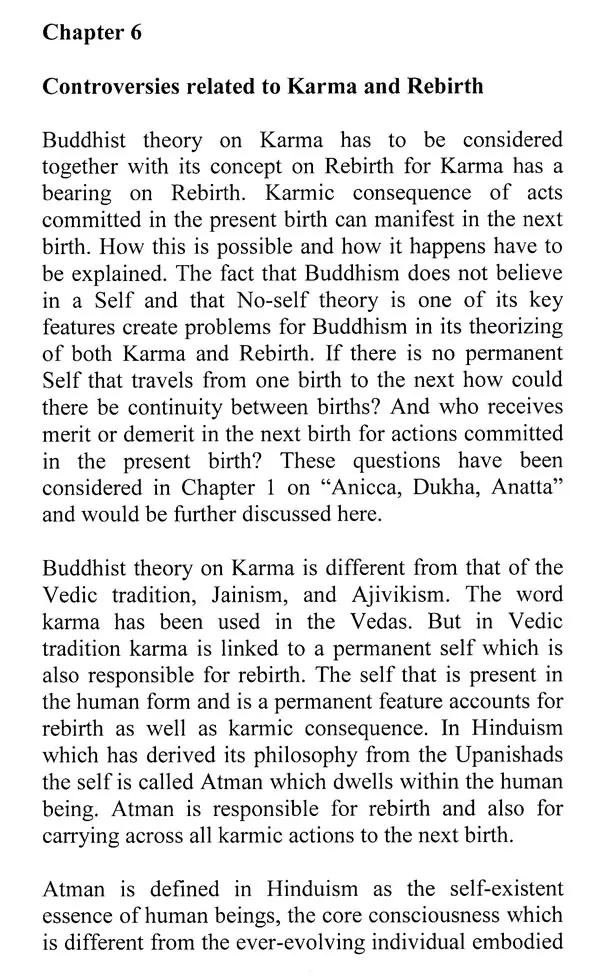
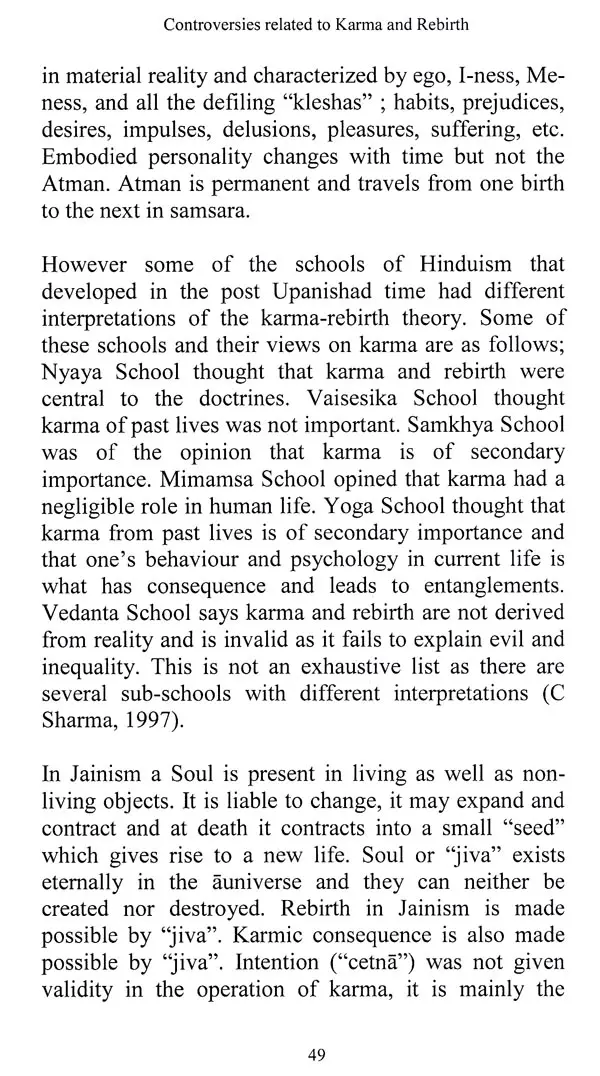
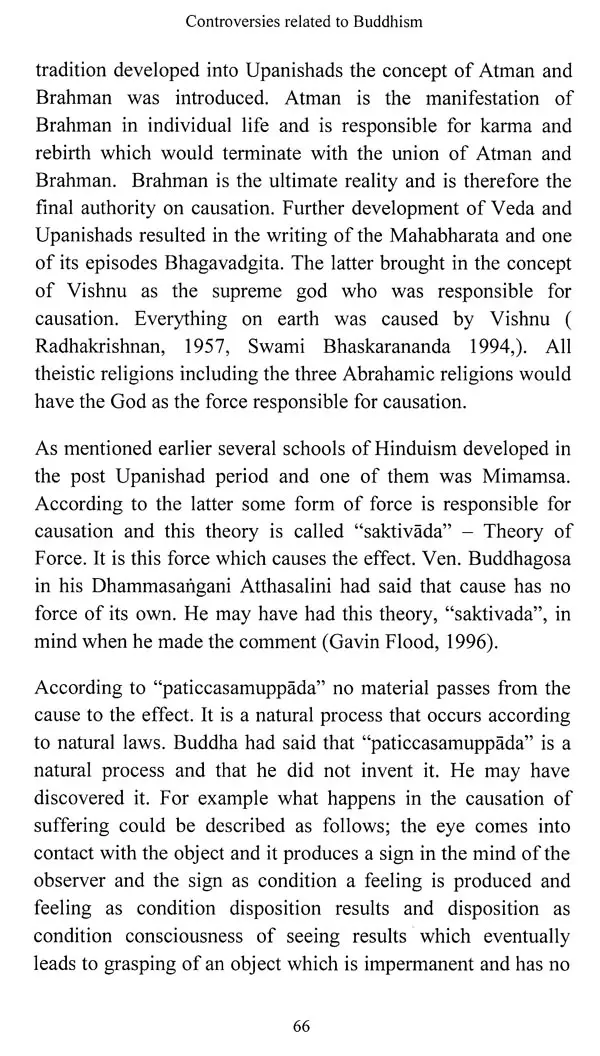
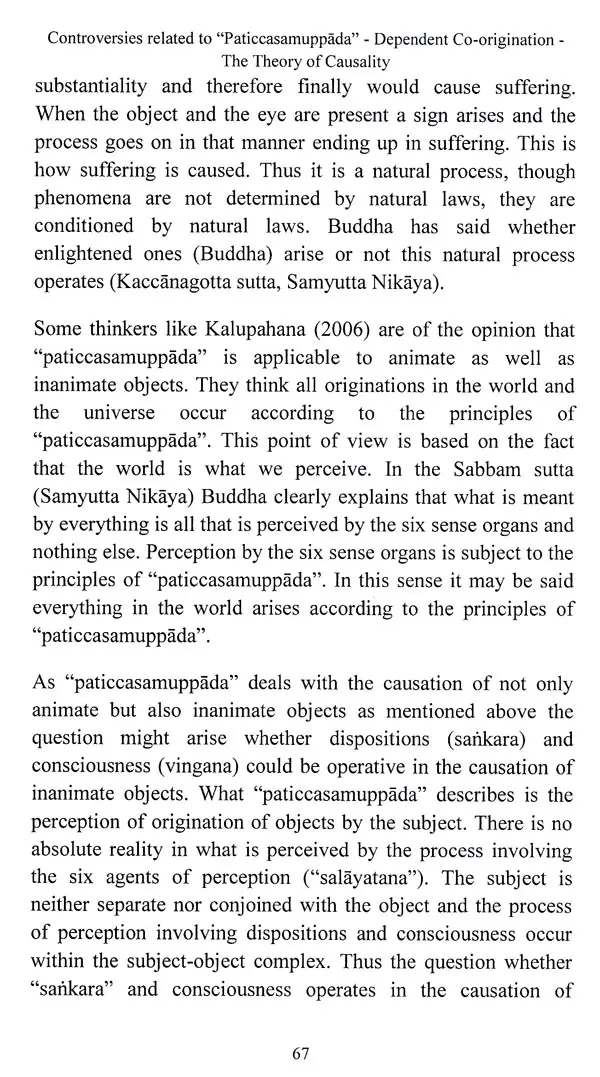
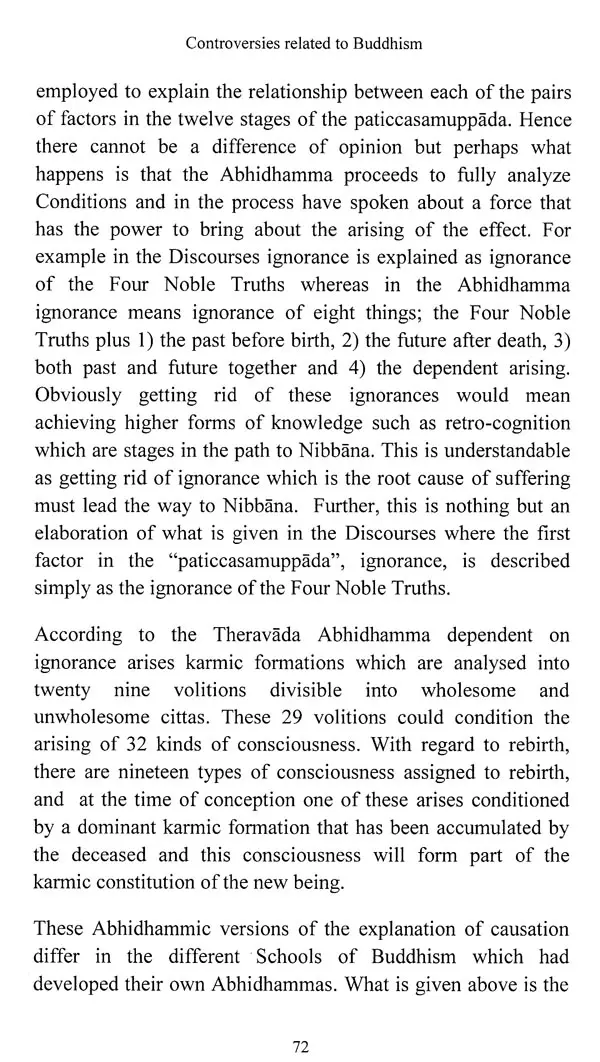

Delivery and Shipping Policy
- INTERNATIONAL SHIPPING
- Rs.1000-1100/kg
- ESTD. Delivery Time: 2-3 weeks (depending on location)
- Bubble Wrapped with Extra Padding
- NATIONAL SHIPPING
- NCR: Rs. 30/half kg
- Standard: Rs. 80/half kg
- Express shipments also available on Request
- ESTD. Delivery Time: Ranging from 1-4 days up to 7 business days (Depending on your choice of Delivery)
- TRACKING
- All orders; national or international, will be provided with a Tracking ID to check the status of their respective orders
- Depending on the Shipping Service, Tracking ID may be used on their respective tracking portals
Frequently Asked Questions (FAQs)
Domestic Shipping: 3-4 Days (after shipping)
International Shipping: 1-2 weeks (based on your location)
You will receive an email once your order has been shipped or you can email us if you didn't receive tracking details (info@mlbd.co.in)
Every book that we sell is the latest edition except all the rare books
Yes, we do provide free shipping, only on domestic orders (within India) above Rs.1500


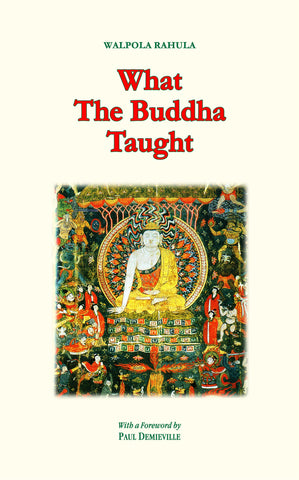
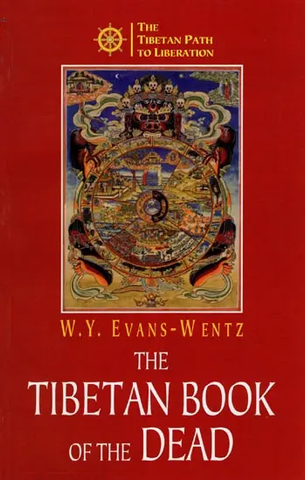
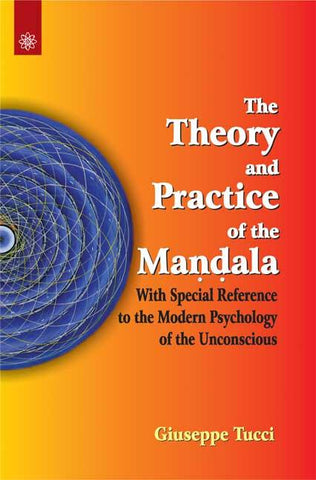
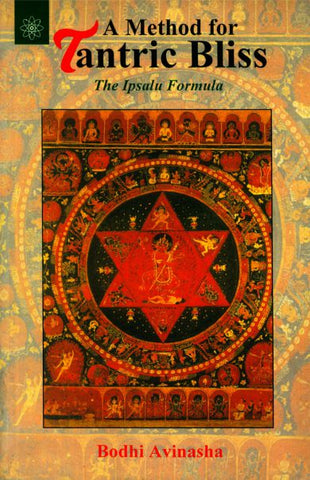
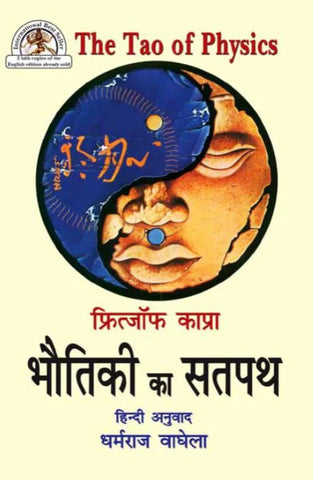
![The Rishukyo [Buddhica Britannica Vol.3]: The Sino-Japanese Tantric Prajnaparamita in 150 Verses (Amoghavajra's Version)](http://www.motilalbanarsidass.com/cdn/shop/products/RISHUKYO_large.jpg?v=1675417651)
